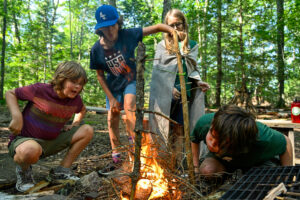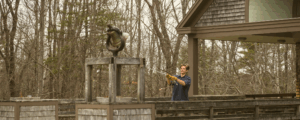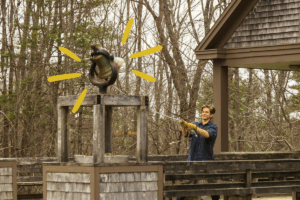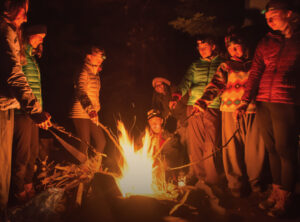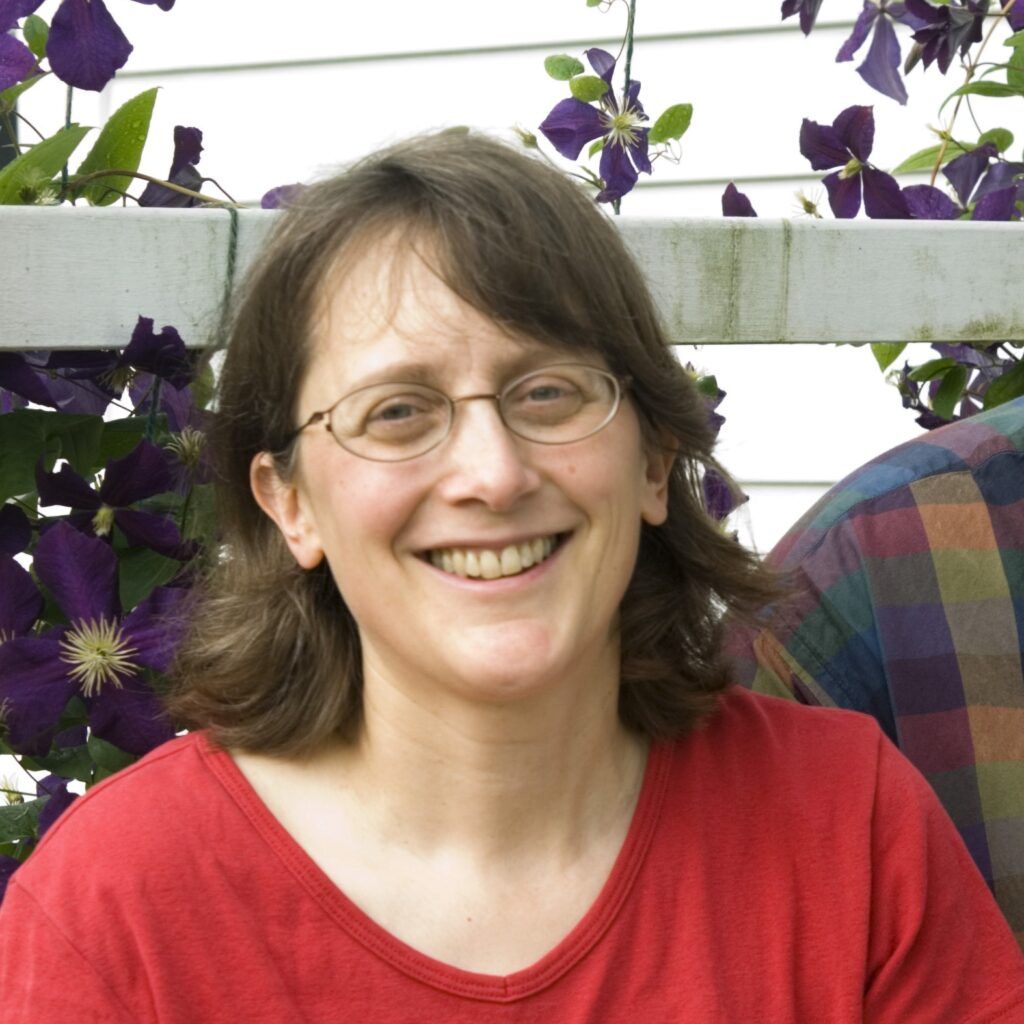
Honoring a Champion of Women at Chewonki
By Guest Author Sue West
This is part of a series celebrating Tim Ellis, Chewonki’s first president, in honor of his 86th Birthday.
I’d like to celebrate Tim Ellis for his incredible support of women at Chewonki in the 1970’s and 80’s, when he was Executive Director after Clarence Allen retired from directing the boys camp. I visited him last summer to ask about those transformative decades. Tim explained that once Chewonki became a non-profit, he launched co-ed programs. His entrepreneurial mind developed programs that were both innovative and practical for a campus that had few winterized buildings. For example, he created environmental education programs with very low overhead by using an outdoor camping model; an alternative year of high school with the state of Maine as its classroom (Maine Reach); and boat building courses that produced large wooden boats for Chewonki sailing trips. He infused every program with a unique educational philosophy that encouraged students to grow and challenge themselves, learn about the natural world, and discover how to create respectful, thriving, collaborative communities – all of which are at the heart of Chewonki’s mission statement.
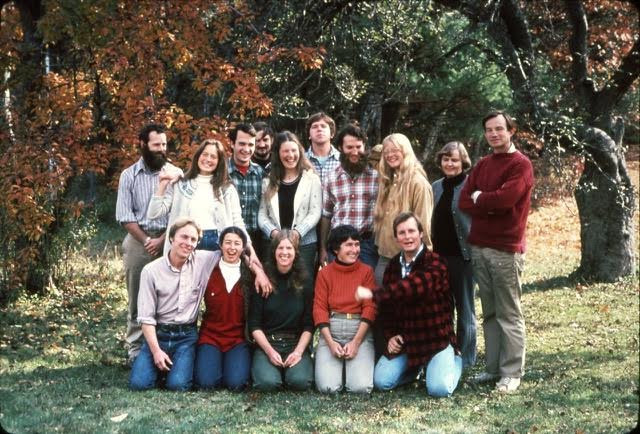
Tim Ellis (far right) promoted and supported many female leaders at Chewonki, including Kate McClain (front row, 2nd from left), Carol Gentry (front row 3rd from left), Sue Sergeant (front row 4th from left), Beth Dilley (back row, center) and Chris “Crow” Swartz O’Brien (back row, 3rd from right).
In order to bring all that to life, Tim needed skilled educators who embraced that mission. He was already aware of excellent male leaders who had grown up at Camp Chewonki and in the schools where he had taught. His next step was to seek out female leaders, as well. As I reflect, I can see that Tim was the one who started turning Chewonki into a more inclusive organization not only by hiring women as leaders, but by giving them respect and trusting them to solve problems innovatively and collaboratively. It was Tim’s solid confidence in the women that he hired that affected me and others so deeply.
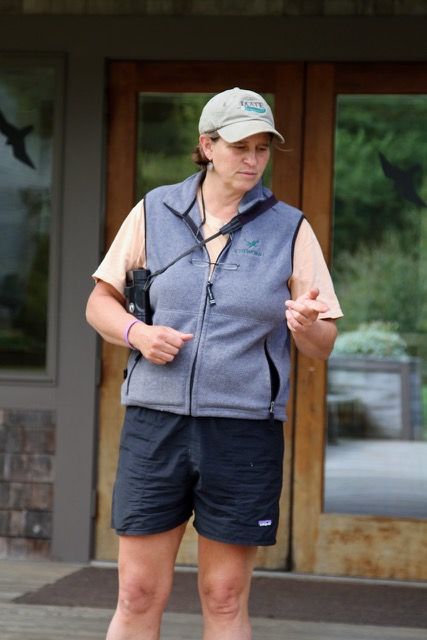
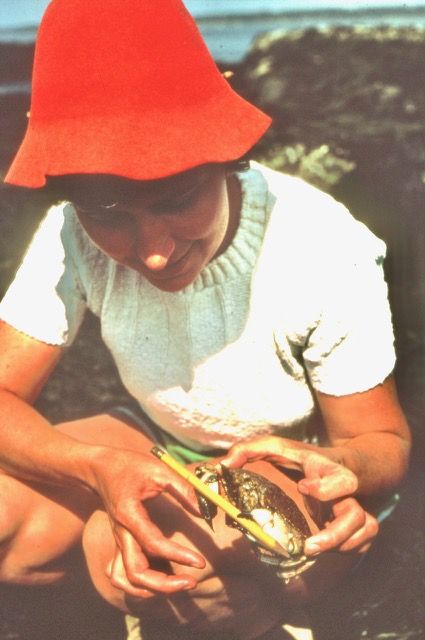
Lynne Flaccus (left) and Sue Sergeant (right) were among the women Tim Ellis promoted into leadership roles in the 1970s and 80s.
I have a vivid memory of a conversation with Tim during a moment of doubt in one of my first years working at Chewonki in the early 80’s. It was early summer, and we were sitting outside near Hilltop, talking about an upcoming whitewater river trip, probably on the Allagash Waterway. It was the first time I’d be leading adults, and although I had experience guiding salt water canoe trips for middle and high school students and had paddled the Allagash a few times, this felt different. Tim had asked me to be the head trip leader, but I couldn’t picture myself in that role. I remember having tears in my eyes. When I told him about my doubts, Tim was kind, but firmly confident in my abilities to lead. He said, “You can do it,” and helped me see that I had plenty of skill and common sense to handle whatever happened. He reassured me that I knew how to prevent mishaps by following familiar protocols and by tapping into the decision-making skills I had developed while leading outdoor experiences with Maine Reach and the Environmental Education (now Outdoor Classroom) programs. In that moment, and many times after that, Tim was instrumental in helping me shed some of the false assumptions I grew up with – assumptions that excluded women from being seen and valued as strong, capable leaders.
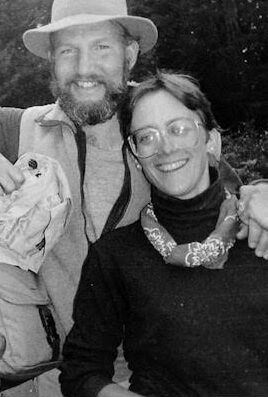
Sue West arrived at Chewonki in the 1979 and is perhaps best known for her role as semester art teacher. But before that, Tim Ellis helped her see her strength when he encouraged her to become a head trip leader. Sue is pictured here with husband and fellow Chewonki staffer Scott Andrews.
I was not the only woman to be asked to lead and to experience Tim’s unwavering confidence and support. During his years as Executive Director, he hired strong female leaders such as Kate McClain, Beth Dilley, Rebecca Marvil, Dorcas Miller, Carol Gentry, Chris “Crow” (Swartz) O’Brien, Sue Sergeant, Marie (Corbin) Keane, Rebecca May, Dot (Roberts) Lamson, Lynne Flaccus and many more. Some of them were leaders of trips in northern Maine and Canada, some taught in the Environmental Education program or in Maine Reach, the year-long program for seniors in high school. While writing this, I reached out to most of the women on that list and heard a familiar theme.
Kate McClain was impressed by the way Tim supported her in her role as Director of Maine Reach in the late 70’s. She recalled a conversation with Tim when she, too, was doubting herself. He did not pamper her or focus on her fears, but encouraged her to move forward with confidence: “It was clear that he had faith in me. He wasn’t on any campaign to support women in particular. He didn’t talk about it or make a big deal of hiring so many strong women. His actions showed that he believed that women were capable of excellent leadership.”
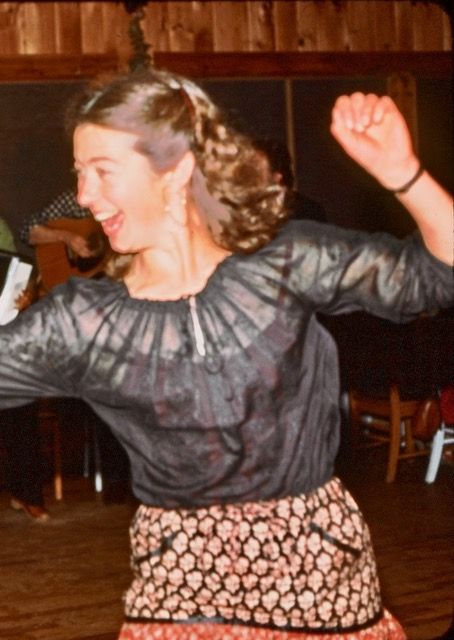
Kate McClain, Director of Maine Reach in the 1970s
Carol Gentry, who taught in Maine Reach and later became the Director of Environmental Education, was quick to say, “If he hired you, he was very supportive. He would stand behind us as leaders – truly. He let me do the job.” Chris “Crow” (Swartz) O’Brien, a Chewonki environmental educator and trip leader, recalled a similar experience: “Tim would say, ‘Go ahead and do it the way you think it needs to be done.’ He was not a micromanager.” Rebecca Marvil, a student at Maine Reach and later a trip leader, agreed: “He empowered us as students, he empowered and respected our women Maine Reach teachers, and I feel he completely believed in me and my skills as a trip leader.”
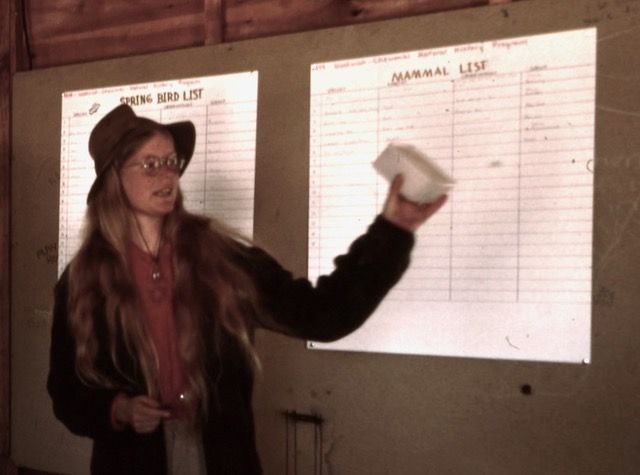
Chris “Crow” (Swartz) O’Brien, an environmental educator and trip leader, reflects, “Tim would say, ‘Go ahead and do it the way you think it needs to be done.’ He was not a micromanager.”
Marie (Corbin) Keane, was hired by Tim in 1983 to lead encampments and trips, including the remote Mistassini expeditions, as well as sea kayaking trips. She described being encouraged to gain new skills: “He was very supportive, providing on-site training, and encouraged me to get my Maine Guide’s license, which I did during the years I worked at Chewonki.” Rebecca Marvil described a similar encouragement from Tim: “He gave people room to grow, become better individuals, and find their strengths. A different person might have discouraged a young woman’s learning and trying out new skills and new ideas. I think he is, in essence, an educator who instinctively knew how to let someone grow and learn in their own way and he didn’t differentiate between men and women.”
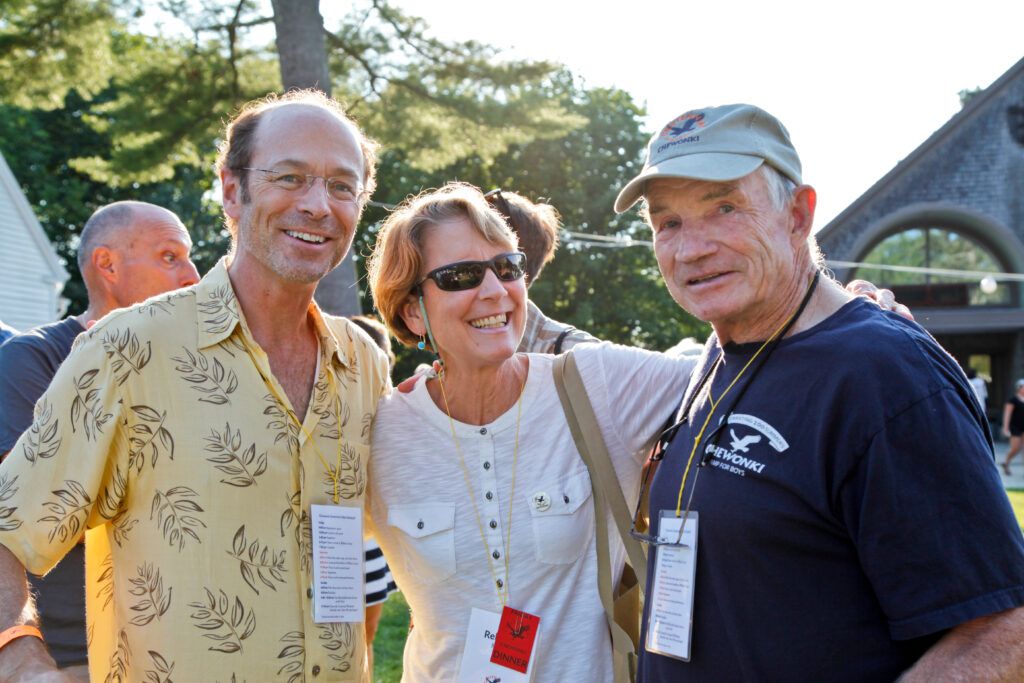
Rebecca Marvil, center, with Joe Selle, left, and Tim Ellis, right. Marvil originally arrived at Chewonki in the 1970s to participate in Maine Reach 3 and subsequently became a Chewonki staff member, trustee, and advisor.
Tim knew how to find excellent leadership by looking for certain qualities and strengths. For example, after seeing how Beth Dilley worked in the kitchen for three summers and volunteered in the camp program during her free time, he asked her to teach Maine Reach in the fall of 1979. When I asked why he chose her, he told me she had “a strong belief in Chewonki’s mission, a great sense of humor, and was willing to hold students accountable while being sensitive to their needs.” She thrived in that job and was tapped for other leadership positions later on.
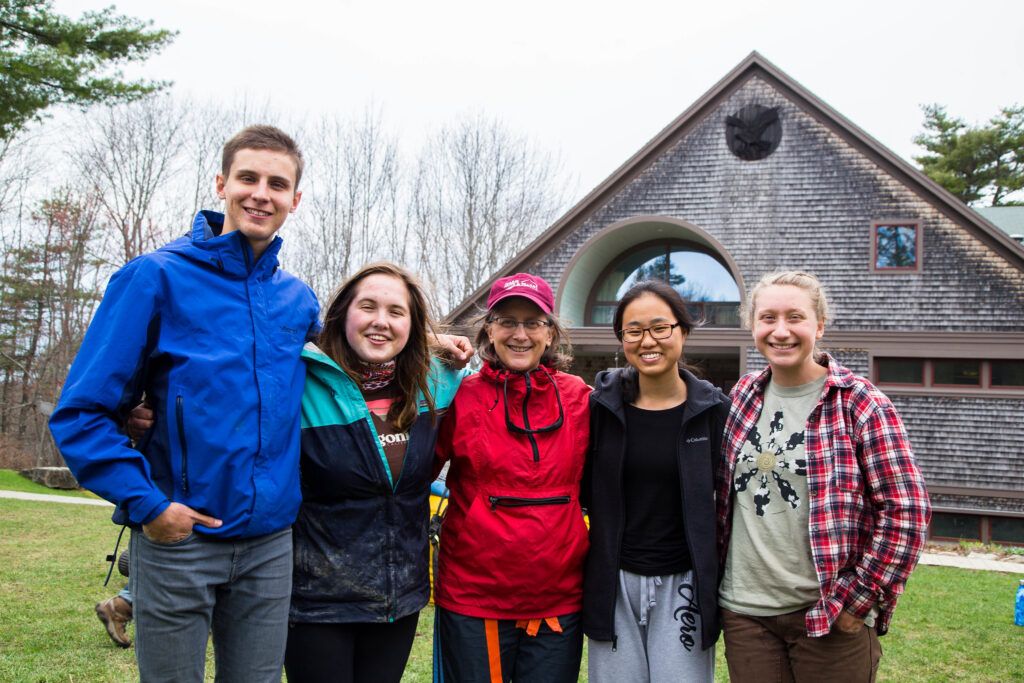
Sue West, center, with Maine Coast Semester students ahead of their solo expeditions.
Dot (Roberts) Lamson agreed that Tim had a gift for finding great leadership and supporting those he hired: “I have to say I do not remember gender ever being a factor in Tim’s hiring or supervising of his staff. I was able to seamlessly move into the position of Director of Environmental Education under Tim’s leadership. He trusted and respected me and gave me free rein to run the program and hire staff. I was never treated differently.”
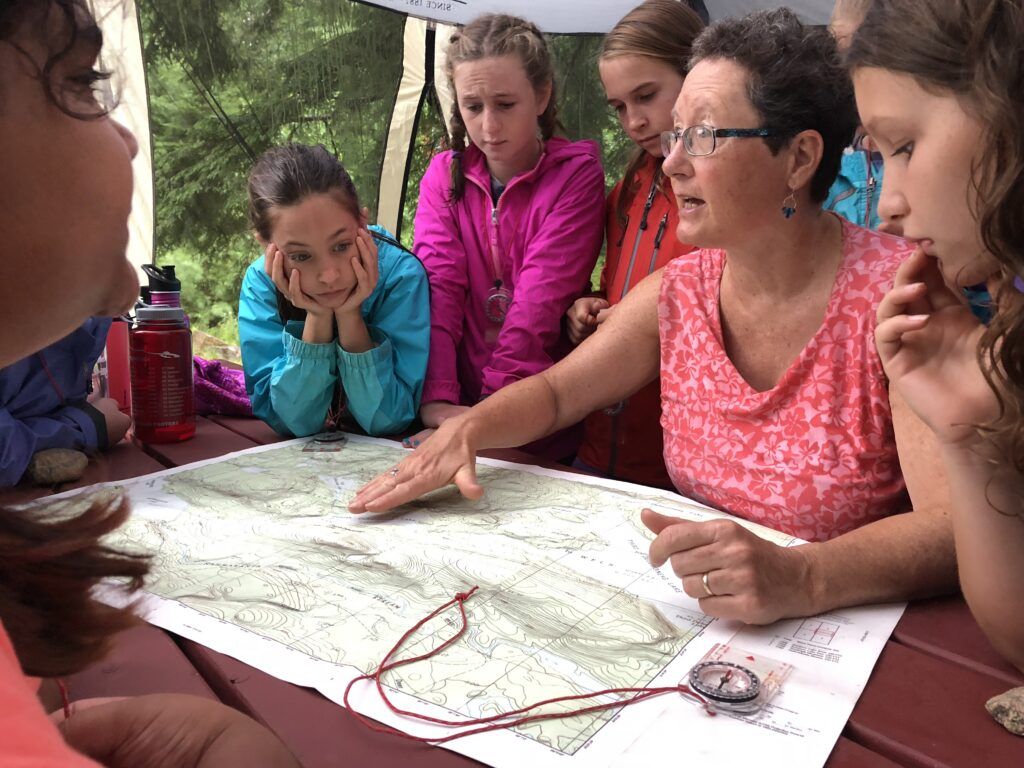
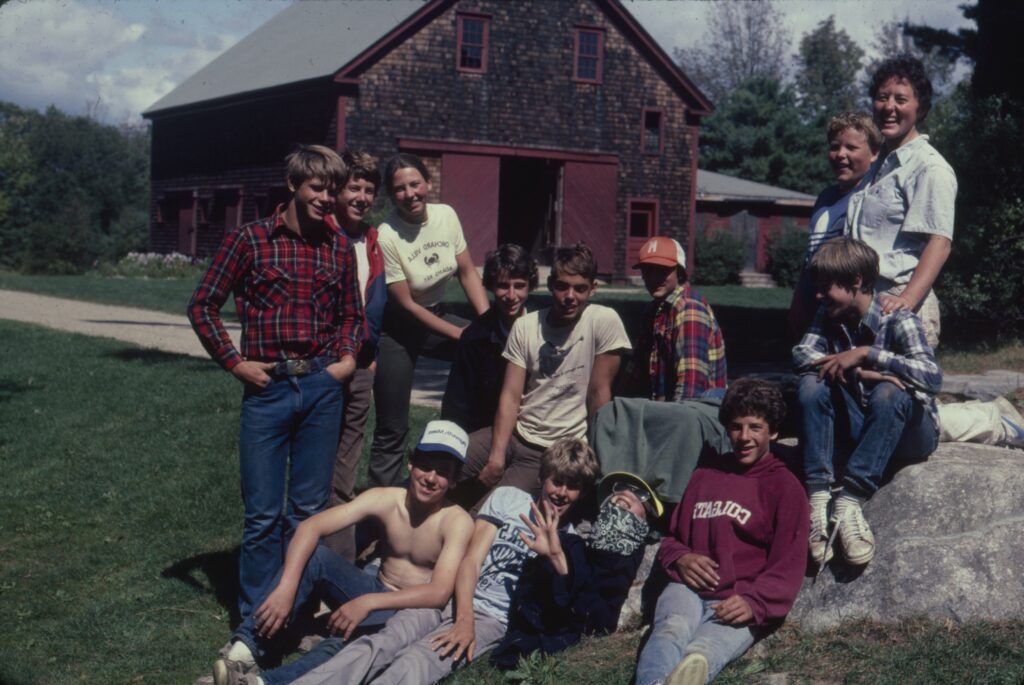
Dot Lamson was one of our earliest directors of environmental education.
Tim may not have thought his support of women was anything out of the ordinary. But in the culture I grew up in, males were given more attention, respect, money, jobs, and opportunities. So it was not surprising that I didn’t see myself as capable of being in leadership positions when I landed at Chewonki. After that conversation with Tim so long ago, I went on to lead many trips, classes, and new programs for Chewonki, taking on more and more responsibility and coming to trust my leadership skills. Tim’s unwavering support, respect, and confidence in my potential fueled a gradual yet exponential growth in self-confidence. I am incredibly grateful to him.
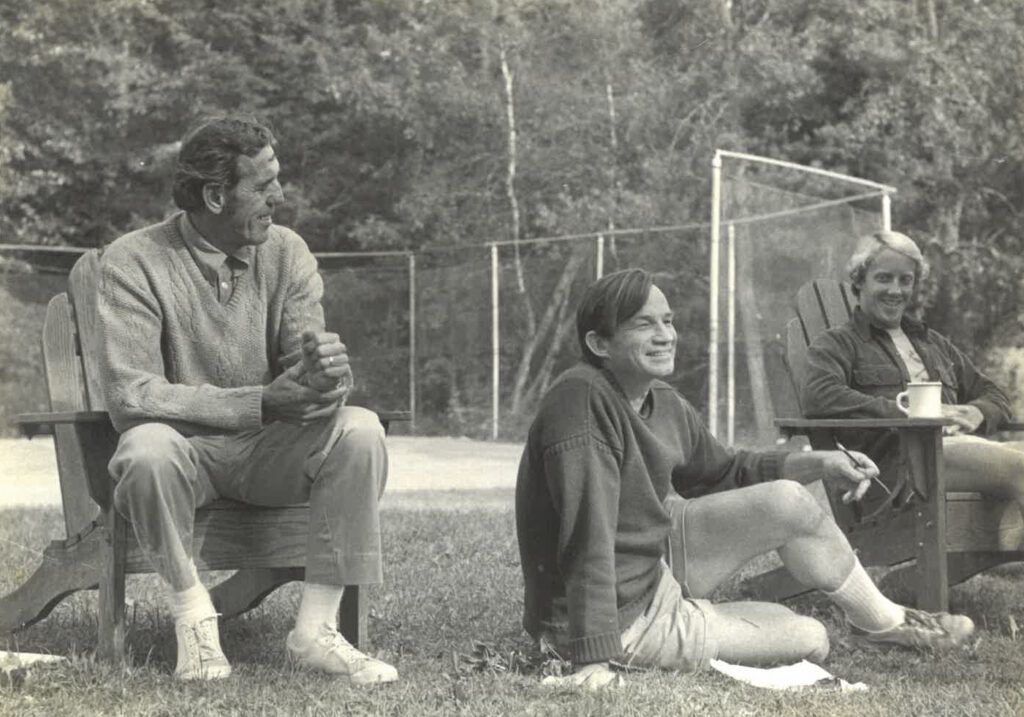
Tim Ellis, center.
And I am equally grateful that he created a pathway to more inclusivity at Chewonki. During my years teaching at the Maine Coast Semester, I was excited and honored to work with others who were also passionate about expanding this path to equity and inclusion – of race, culture, gender identity and expression, sexual orientation, and socio-economic diversity. Since retiring, one of the things I miss most about my job is the shared work of this vision. I celebrate those who are working to expand upon what Tim began. If he were still at the helm, I have no doubt he would be leading the way.

